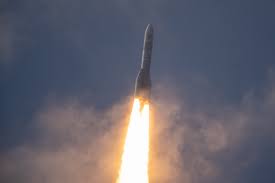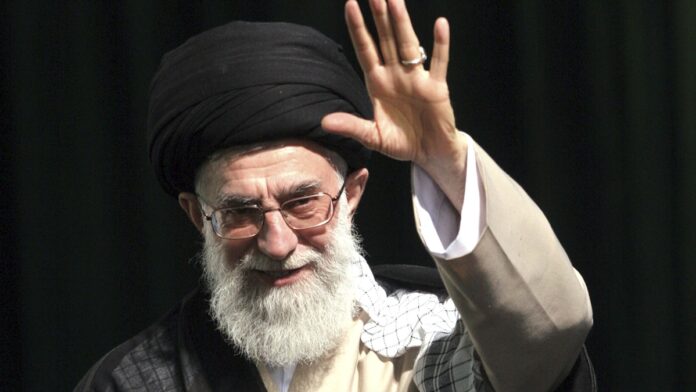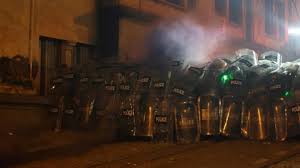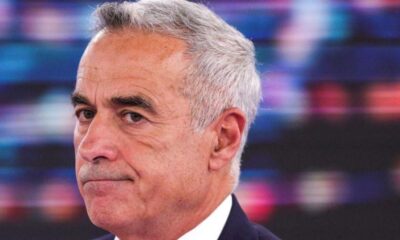News
Europe Rejoins Space Race with Ariane 6 Rocket Launch

The powerful European-built Ariane 6 rocket made its long-awaited liftoff on Tuesday, marking the region’s reentry into a launch market dominated by Elon Musk’s SpaceX. The Ariane 6, standing over 200 feet tall and powered by its Vulcain engine and two boosters, launched from Kourou in French Guiana at 3 p.m. ET, successfully reaching orbit.
The $4.5 billion project, overseen by the European Space Agency (ESA) and built by ArianeGroup, a joint venture between Airbus and Safran, involves contributions from 13 nations. Ariane 6 continues a European rocket lineage dating back to the 1970s, succeeding the Ariane 5, which retired last year after 117 launches. Ariane 6 comes in two versions: Ariane 62, capable of delivering up to 10,000 kilograms of cargo to low Earth orbit (LEO), and Ariane 64, which can carry up to 21,000 kilograms to LEO.
Ariane 6 falls into the “heavy” class of rockets in the launch market. Its debut flight is a demonstration mission for the ESA, carrying a variety of small satellites and spacecraft. The nearly three-hour flight will deploy 11 spacecraft and includes key tests of the rocket’s upper stage engine.
The launch faced multiple delays due to technical issues, the Covid-19 pandemic, and the war in Ukraine. Following its invasion of Ukraine, Russia suspended all European mission launches on its Soyuz rockets. Additionally, the smaller Vega-C rocket has been grounded since a failed 2022 launch, with no flights expected until later this year at the earliest.
Despite rising costs and delays, European leaders support the Ariane 6 program, emphasizing the importance of independent access to space rather than reliance on SpaceX. SpaceX’s reusable and cost-effective Falcon 9 rockets have become a strong alternative for spacecraft awaiting Ariane 6’s debut. High-profile ESA missions like the EarthCARE spacecraft, Euclid telescope, and Galileo satellites have already launched on SpaceX rockets.
Recently, European weather satellite operator EUMETSAT switched an upcoming satellite launch from Ariane 6 to Falcon 9, a decision that sparked criticism from other European officials. Beyond Europe’s desire for independent space access, Ariane 6 has a crucial customer in Amazon, which has ordered 97 rocket launches from five companies, nearly a fifth of which were won by Arianespace to launch Project Kuiper internet satellites on Ariane 6.
News
Flights cancelled and new travel warnings issued after Iran strikes

Airlines across the Middle East and beyond are cancelling and diverting flights following military strikes by the United States and Israel against Iran, with the ripple effects now significantly impacting global travel.
Flights have been suspended in and out of key regional hubs including Tel Aviv, Dubai and Doha as airspace closures continue amid escalating security concerns.
The UK’s Foreign Office has issued updated travel guidance, advising against all but essential travel to Bahrain, Kuwait, Qatar and the United Arab Emirates, urging British nationals already in these countries to remain sheltered.
Iran has launched retaliatory attacks across Gulf states in response to the strikes that began early Saturday, prompting widespread disruption to long-haul routes. Heathrow Airport has advised passengers to check with airlines as delays and cancellations continue.
British officials are reportedly preparing contingency plans to evacuate UK nationals, though timelines remain uncertain due to extensive airspace closures.
Major carriers have already suspended operations. Emirates halted flights to and from Dubai until Monday afternoon local time, while Etihad Airways paused departures from Abu Dhabi.
There have also been casualties linked to the unfolding crisis, with one person killed and 11 injured at airports in Dubai and Abu Dhabi. Among the injured were staff at Dubai International Airport.
British Airways has cancelled services to Tel Aviv and Bahrain until Wednesday and warned that routes between Heathrow and destinations including Abu Dhabi, Amman, Doha and Dubai could be disrupted for days.
Meanwhile, Virgin Atlantic has suspended flights to Riyadh and Dubai, noting that journeys to destinations such as India, Saudi Arabia and the Maldives may take longer as aircraft are rerouted.
Airspace over Iran, Israel, Iraq, Qatar, Bahrain, Kuwait, Syria and the UAE remains closed, while Saudi Arabia has implemented partial restrictions. Though Jordan and Lebanon remain open, flight activity there is limited.
Qatar Airways said its operations remain temporarily suspended following the closure of Qatari airspace.
Explosions have been reported in multiple locations, including at Erbil airport in Iraq, while Gulf states including the UAE and Qatar say they have intercepted Iranian missiles and drones.
The UK has also expanded its travel warnings, advising against all travel to Israel and the Palestinian territories, and urging caution across several other countries including Saudi Arabia, Jordan, Lebanon and Iraq.
UK Prime Minister Keir Starmer confirmed British aircraft are participating in defensive operations in the region, following discussions with US President Donald Trump.
With large sections of Middle Eastern airspace still restricted, uncertainty continues for travellers worldwide as the security situation evolves.
News
Three US service members killed in Iran operation as Israeli rescuers say nine dead in Iran strike

Casualties are continuing to mount across the Middle East as military exchanges between the United States, Israel and Iran enter a second day, deepening fears of a widening regional conflict.
United States Central Command (Centcom) confirmed that three American service members have been killed in action, with five others seriously wounded.
Iranian state media reported that the Islamic Revolutionary Guard Corps claimed responsibility for launching four ballistic missiles toward the USS Lincoln aircraft carrier. However, Centcom said the missiles “did not even come close” to their intended target.
On the Israeli front, the Israel Defense Forces accused Iran of “killing innocent civilians” after a missile strike on the city of Beit Shemesh left nine people dead. Correspondents described the attack as the deadliest in Israel since the current escalation began.
Meanwhile, an Iranian official reported that 153 people were killed after a girls’ school in Minab was hit in recent strikes. An IDF spokesperson said he was not aware of any Israeli operation in the area.
As hostilities spill beyond the immediate conflict zone, the United Arab Emirates said three people have been killed by Iranian attacks since yesterday. The country’s Ministry of Defence also confirmed that a naval base had come under drone attack.
Following the death of Iran’s Supreme Leader Ali Khamenei, Foreign Minister Abbas Araghchi told Al Jazeera that a successor could be chosen within “a day or two” as the Iranian leadership moves to establish an interim governing structure.
With military actions and civilian casualties rising across multiple countries, the situation remains volatile as the conflict continues to unfold.
News
Iran Confirms Death of Supreme Leader Ali Khamenei in Overnight Strikes

Iran has announced the death of its Supreme Leader, Ali Khamenei, following overnight strikes reportedly carried out by the United States and Israel.
According to Iran’s Supreme National Security Council, Khamenei was killed early Saturday morning at his office in Tehran while carrying out official duties.
Satellite imagery has since shown extensive damage to parts of the Leadership House compound in the Iranian capital, where Khamenei maintained his office.
Iran’s state-linked Islamic Revolutionary Guard Corps-affiliated Tasnim News Agency said the circumstances of his death refuted earlier claims that he had gone into hiding, describing such reports as “psychological warfare”.
The announcement was delivered across state television, with presenters visibly emotional as they confirmed the country would observe 40 days of mourning.
Attention is now expected to turn to the Assembly of Experts, the powerful clerical council responsible for appointing a successor.
Iran’s Red Crescent reported that more than 200 people were killed during the strikes.
In retaliation, Iran has launched attacks across parts of the Middle East, targeting areas hosting US forces and allied interests, including locations in Dubai, Doha, Bahrain and Kuwait.
UK Prime Minister Keir Starmer said Britain is participating in coordinated regional defensive operations aimed at protecting its citizens and partners.
US President Donald Trump described Khamenei as “one of the most evil people in history” and said his death represented a potential turning point for Iran’s future. He also indicated that military operations would continue, as explosions were still being reported across Tehran.
The situation has sparked division among US lawmakers, as the president cannot formally declare war without congressional approval. Meanwhile, the United Nations warned that the military escalation risks undermining regional stability.
Further strikes have continued, with US Central Command stating it is carrying out “swift and decisive action”, while the Israel Defense Forces confirmed a new wave of attacks targeting Iranian missile systems, defence infrastructure and command centres.
Explosions have continued to be heard across Tehran as tensions in the region intensify.
-

 News1 week ago
News1 week agoBritish Tourist Among 19 Victims in Tragic Nepal Bus Crash
-

 News1 week ago
News1 week agoMore than 5,000 flights cancelled as major snow storm blasts US north-east
-

 News6 days ago
News6 days agoTrump’s Global Tariff Rollout Begins at 10% Amid Policy Adjustments
-

 News3 days ago
News3 days agoTram derails in Milan, leaving one dead and dozens injured
-

 News6 days ago
News6 days agoLouvre Director Steps Down Following Jewel Heist and Security Review
-

 Entertainment6 days ago
Entertainment6 days agoRobert Carradine, dies aged 71
-

 Sports5 days ago
Sports5 days agoMan Utd ruled out signing Osimhen ‘because of Afcon’
-

 Sports5 days ago
Sports5 days agoJoshua crash driver case adjourned to March






















